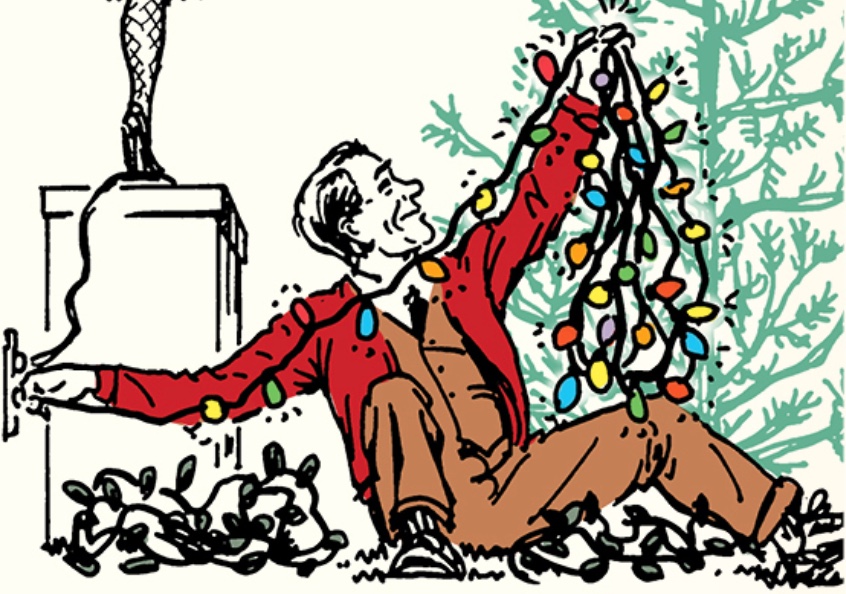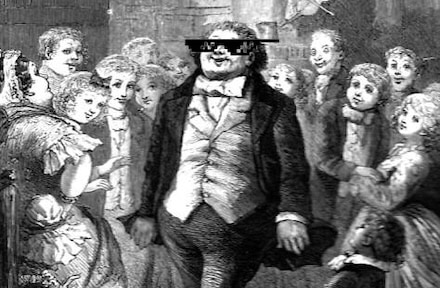America is dealing with a “boy disaster.” The statistics are stark: Boys are way more seemingly than ladies to fall behind in class, die by suicide, and find yourself in jail.
When consultants provide options to the issues dealing with the male inhabitants, most push for a basic reimagining of masculinity — urging boys to reject the supposed stereotypes of manhood.
A century in the past, Progressive reformers confronted their very own “boy disaster.” Like immediately, they nervous about juvenile delinquency, substance abuse, and poor academic outcomes.
However their resolution couldn’t have been extra completely different from our trendy method.
Whereas immediately’s consultants push to make boys much less historically masculine, these early Progressive reformers believed in working with boys’ pure inclinations relatively than towards them. Their most stunning conclusion?
Boys want to affix gangs.
The Gang Intuition
Progressive reformers of the early 1900s noticed that not like ladies, who tended to type one-on-one relationships with their feminine pals, boys naturally socialized in teams. They ran in packs. They shaped gangs. These boy gangs might be discovered on avenue corners and in parks, getting as much as adventures, video games, and all method of hijinks.
Influenced by John Dewey’s Pragmatist philosophy (which was influenced by Darwinism), these reformers hypothesized that this tendency for boys to type gangs was an innate, evolutionary adaptation.
They referred to as it the “gang intuition.”
In a 1911 article for Lippincott Month-to-month Journal, educator Luther Gulick unpacked this concept:
These possessed of those [gang] emotions could be higher fitted to outlive than those that had been purely egocentric, and so, step by step, the egoistic man could be eradicated from the race. The person who might sympathize with the gang emotions, whose life might be molded into conformity with the remainder, would have a greater alternative to breed himself within the succeeding technology than the person who was adequate unto himself.
By way of the regular elimination of the extra egoistic, and the survival of the extra altruistic, the kids would inherit social capability, and be increasingly more cooperative of their tendencies and actions.
The gang intuition, then, is of evolutionary origin. It expresses itself within the particular person boy in these emotions of sympathy and need for the companionship of others of his personal type, which had been elementary components within the survival of his forefathers. These early fighters who had not the gang intuition had been so effectually eradicated, and the qualities of these with the extra social natures had been so completely stamped upon the human race by means of the motion of choice, that now the conventional boy calls for associates of his personal type as naturally because the child cries, or the hen builds its nest.
Different writers from that point echoed Gulick. In 1912, J. Adam Puffers revealed a guide entitled The Boy and His Gang, the place he argued that boys have a “deep seated unconscious want” to affix a gang with different boys. In accordance with Puffers, the gang drive in boys begins at round age 9 and intensifies by means of adolescence and into younger maturity. For Puffers, belonging to a gang, or group of boys, was an important step within the wholesome social improvement of a boy, for it’s within the gang {that a} boy learns the artwork of camaraderie:
Within the gang, then, we discover the pure time and place for the considerably sudden beginning and improvement of that spirit of loyalty which is the muse of most of our social relations. We should, briefly, look upon the gang as nature’s particular training-school for the social virtues.
Solely by associating himself with different boys can any youth study the knack of getting on along with his fellow males; purchase and observe cooperation, self-sacrifice, loyalty, constancy, staff play; and generally put together himself to turn into the politician, the enterprise man, the environment friendly citizen of a democracy.
Nature, we should imagine, has given the boy the gang intuition for the sake of constructing straightforward for him the observe of the gang virtues.
The impulses to loyalty, constancy, cooperation, self-sacrifice, justice, that are on the foundation of gang psychology, are powerfully strengthened, as we now have already seen, by practically all the everyday gang actions.
Puffers believed that boys who didn’t have the gang expertise would find yourself socially stunted: “they fail to move by means of the conventional improvement of human males; they lack a basic advantage and their fellows is not going to belief them, boy or man.”
Gulick argued the identical factor, positing that boys who didn’t have the gang expertise whereas rising up might turn into “effective people, in the primary” however typically turn into “incapable of social motion. The give and take concerned in gang exercise was past them. . . . The interval appeared to have handed for the event of these basic traits which make the gang teamwork and cooperative endeavor potential.”
In 1915, Albert Hines wrote within the journal Work With Boys that gangs offered a manner for a boy to have interaction in “muscular motion [and] journey” the place he might acquire the “approval of his fellows which he finds in his gang.”
For these thinkers and educators, a boy’s pack of pals was the sector wherein younger males developed the social virtues essential to be good residents in addition to their sense of manhood. It was the sector wherein their extra annoying, socially-retarding tendencies had been checked and their must really feel valued was affirmed. By way of their participation in a gang, Progressive reformers believed, a boy was capable of start the method of proving himself a person, and gaining the boldness that got here with it.
The Approach of Males Is the Approach of the Gang
Fashionable analysis has confirmed this century’s-old instinct. Anthropologist Lionel Tiger documented how males throughout cultures naturally type cooperative teams to attain widespread targets, whereas Harvard psychologist Joyce Benenson’s analysis exhibits that boys have a tendency towards socializing in teams whereas ladies choose dyadic relationships. Each argue this male “gang intuition” developed as a result of group cooperation helped our historic male ancestors hunt and combat efficiently.
Author Jack Donovan summed up this analysis on the male gang intuition in his guide The Approach of Males when he asserted: “The way in which of males is the way in which of the gang.”
For Donovan, masculinity is essentially about being “a person amongst males” — the flexibility to succeed inside male teams is how you determine should you’re a person. Being a person isn’t a person process, however one that’s completed inside a small, honor-bound group. You possibly can’t consider for your self whether or not you’ve achieved the masculine virtues; it’s one thing that needs to be assessed by one’s revered friends.
Donovan’s conclusion aligns with each trendy analysis and the ideas of early Progressive reformers: the gang is prime to male social improvement.
Most males intuitively perceive what these thinkers had been speaking about. We bear in mind our personal “gangs” — whether or not it was a sports activities staff, a church group, or only a crew of neighborhood pals. My very own fondest teenage recollections revolve round these teams: my soccer teammates pushing each other by means of brutal summer time practices; my church youth group taking up bold service initiatives; my highschool pals moving into occasional mischief.
As a grown man who has spent eight years main church youth teams and training boys’ sports activities, I’ve gained a extra birds-eye view of the gang intuition as properly. On the flag soccer staff I coached, I watched 12-year-olds rework from particular person gamers right into a tight-knit unit, creating their very own tradition and codes. At church, I’ve seen teenage boys flip scripture memorization right into a staff sport, their pure competitiveness driving them to achievements they most likely wouldn’t have taken on alone. By way of my son Gus, I get glimpses of how trendy boys nonetheless type pure packs, full with their very own rituals, inside jokes, and occasional harmless rise up towards authority.
And I’ve additionally seen, simply as Puffers did again in 1912, that boys who don’t have the “gang” expertise find yourself socially stunted. Usually vibrant and succesful in different methods, these boys by no means fairly catch the gang spirit. Regardless of their friends’ greatest efforts to incorporate them, they continue to be on the periphery, lacking essential alternatives to develop social expertise and emotional intelligence. They by no means develop the capability for teamwork and “true comradeship.” They usually turn into grown males who typically battle to navigate male social dynamics, hold to themselves, discover it tough to type shut bonds with different guys, lean on their wives as their solely pals, and have bother understanding the unwritten guidelines of group dynamics.
Harnessing the Gang Intuition for Good
I’m within the gang enterprise. I imagine within the gang spirit. The gang spirit is noble. It’s the social spirit, the spirit of 1 for all. The difficulty with the gang spirit is that it isn’t utilized by the group. —Albert B. Hines, Work with Boys (1916)
The phrase “gang” has a adverse connotation immediately and is related to “poisonous masculinity.” After we consider gangs, we nearly completely consider the city, inner-city selection, which are sometimes the supply of violence, crime, and dysfunction in a group.
The identical Twentieth-century reformers who boosted the worth of the gang spirit additionally acknowledged that gang life might doubtlessly be harmful. Frederic Thrasher revealed a complete research in 1927 that highlighted how gangs in Chicago typically led younger males into legal habits and social dysfunction.
Nevertheless, these identical reformers argued that the answer wasn’t to suppress the gang intuition, however relatively to channel it in optimistic instructions.
In 1933’s The Constructing of Boyhood, Frank Cheley argues:
Thus the true gang spirit, which prior to now has been heralded as the best menace of boy life, can simply be became the biggest issue for private development and improvement. Gangs want course, not annihilation, clever steerage, not silly opposition, a worthwhile stream of exercise, not hands-off coverage.
Lyman Beecher Stowe made an analogous argument about harnessing gang vitality for optimistic ends when he wrote: “The very best factor to do with a boy is to place him in a ‘gang’ — and watch the gang. . . . with supervision, even the worst gangs can turn into useful companies.”
These leaders understood and revered the vitality of the gang spirit in boys. It’s like electrical energy. And not using a correct channel, it may be harmful. However give it a conduit, and the ability turns into life-giving.
How did these reformers recommend harnessing the gang spirit for good?
Staff sports activities was a method.
Organizations just like the Boy Scouts was one other.
A few of these reformers had been clergymen as properly, so that they thought church buildings might additionally present an enviornment the place wholesome male gangs might type.
In The Constructing of Boyhood, Cheley urged fathers to encourage their sons and their pals to congregate of their properties and to steer the boys in a semi-structured program of arts, crafts, health, character improvement, and skill-building.
So what would optimistic gangs appear to be within the twenty first century?
For probably the most half, I believe they’ll look the identical manner as they did in 1920.
Staff sports activities nonetheless present alternatives for wholesome boy gangs to type, which is why I believe each boy ought to play one.
I don’t assume massive organizations just like the Boy Scouts and the like work within the twenty first century. These organizations had been merchandise of their time and aren’t properly suited to the ethos of immediately’s extra fragmented society.
I believe if dad and mom and lecturers wish to extra successfully attain boys and assist nurture optimistic gangs, it must be a grassroots effort. There’s not going to be some massive, Progressive-era group that may prevent. These days are gone.
That’s why I believe Cheley’s imaginative and prescient of father-led neighborhood teams is an efficient one. I’ve completed this with my very own son and his greatest buddy. My son’s buddy’s dad and I took our boys by means of a modified model of the Strenuous Life Problem just a few years in the past with success.
I additionally assume male lecturers can play a task in fostering optimistic gangs. Through the years, I’ve gotten letters from males who’re lecturers and have used AoM’s content material to create edifying faculty golf equipment for the younger males they mentor.
Your Son Is a Pure Gangster
Your boy is a pure gangster, subsequently encourage him to affix a clear gang. — Edwin Puller
The trendy push to remake boys into much less masculine beings and, in some circumstances, break up boy gangs altogether has largely failed as a result of it really works towards, relatively than with, boys’ pure inclinations. Just like the Progressive reformers understood, we want optimistic realism: boys will type gangs whether or not we prefer it or not. Our selection is whether or not these gangs type within the shadows of Discord servers and unsupervised areas or in constructive environments with grownup steerage.
The aim isn’t to remove the gang spirit however to channel it. When correctly directed, the identical vitality that may result in delinquency can be utilized to forge sturdy character, educate social expertise, and construct future leaders. Your son’s gangster nature isn’t a flaw to be mounted — it’s a drive to be harnessed.
The problem for folks, educators, and group leaders isn’t to make boys much less boyish, however to create the optimistic gangs that trendy boys critically want. Whether or not by means of sports activities groups or church teams, we have to give boys what they really need of their hearts: the prospect to belong, to attain, and to show themselves amongst their friends.







